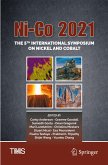This work was carried out due to a necessity of solid oxide fuel cells field, which needed an electrically conductive and very stable coating to be applied on metallic interconnect, part of fuel cell stack. Here one can find some syntheses methods to produce cobalt manganese oxide spinel like solid state-reaction, gel-combustion, co-precipitation and reverse micelle. Each of this method has its own peculiarity, raw materials, difficulty and produces a very different powder characteristics; moreover, produced materials were heat treated to sintering and their shrinkage curve were analyzed to evaluate their sintering behavior. A great focus on this research was given to a new developed sintering technique called flash-sintering. This new method promotes sintering of ceramics through electric field assisted technique. The sintering of the material occurs at relative low temperature when compared to standard techniques. Hence, the attention of industries and academia was raised toward the flash-sintering method.







